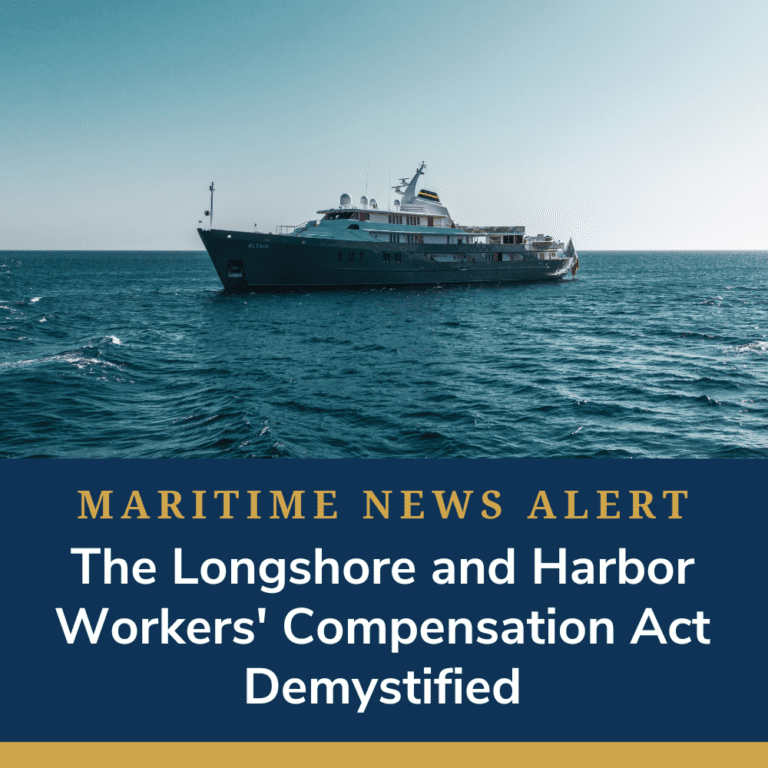
The Longshore and Harbor Workers’ Compensation Act (LHWCA) is a federal law that protects maritime workers who get injured at sea or on vessels. This law grants compensation, medical care, and rehabilitation services to those who become disabled at work.
As a maritime worker, it is important to know your rights in case an emergency ever occurs.
What is the difference between the Jones Act and the LHWCA?
The Jones Act and the LHWCA are mutually exclusive. The LHWCA excludes from coverage any “master or member of a crew of any vessel,” effectively tying the determination of coverage to the status and association of the employee in relation to a vessel.
Who is Covered by LHWCA?
Every employer is liable to pay their employees compensation if they are injured at sea regardless of the cause of the injury. Injuries occurring in adjacent areas are covered as well, including:
- Piers
- Docks
- Wharves
- Terminals
- Loading/Unloading Areas
The LHWA covers employees who have been injured working in maritime occupations such as:
- Longshore Workers
- Ship-Repairers
- Shipbuilders
- Ship-Breakers
- Harbor Construction Workers
Non-maritime workers may also be covered by LHWCA if they have been injured while performing their work in navigable waters.
Extensions of the Longshore Act
Other forms of employment are covered by several extensions of the LHWCA:
- Defense Base Act (DBA)
- Outer Continental Shelf Lands Act (OCSLA)
- Non-Appropriated Fund Instrumentalities Act (NAFIA)
What Should I Do if I Have an Occupational Injury?
If you have been injured at your maritime job it is recommended that you seek immediate medical attention and then contact an experienced personal injury attorney.
Under the LHWCA, you have two years from the date of injury to file a claim. Injury at Sea has experienced personal injury attorneys who can help you with your claims after an occupational injury.
For an immediate telephone consultation to discuss your maritime injury case, call Injury At Sea at 1-800-732-7258 or contact us online. You can trust us to protect your rights and get you fair compensation for the injuries you have suffered.